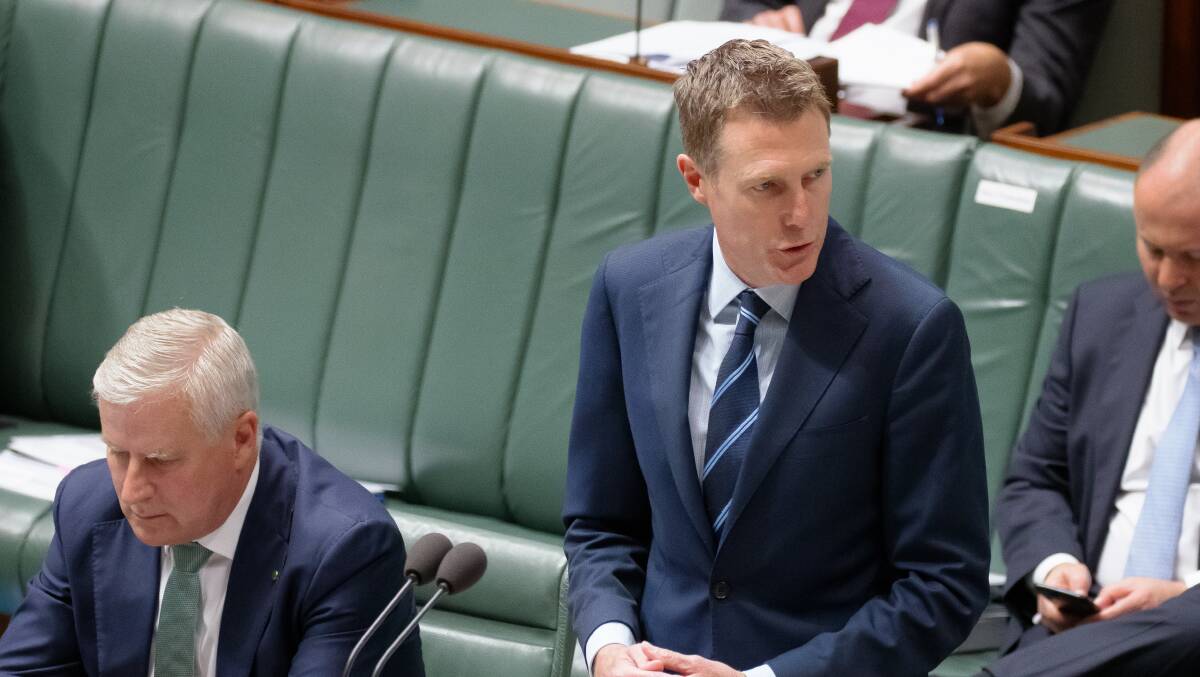
Accidentally underpaying workers is a major fear of small businesses, the government claims as it gets set to boost measures to make it easier to understand and comply with the law.
Subscribe now for unlimited access.
$0/
(min cost $0)
or signup to continue reading
Businesses should have certainty they will not be undermined by unscrupulous competitors, Industrial Relations Minister Christian Porter said, as he backed the Fair Work Ombudsman to target businesses that systemically underpay their workers.
The industrial relations reforms, to be revealed this week, will also make it easier for employees to recover lost wages.
The government will announce on Tuesday that it will be providing $47 million to the ombudsman, and tasking it with providing enhanced tools and education for small businesses and investigating large corporations for systemic underpayment.
"The government believes the majority of employers mean to do the right thing, but it is clear that mistakes are happening," Mr Porter said.
"All businesses should be encouraged to invest appropriately in their payroll systems and practices to prevent underpayments from occurring - especially larger organisations."
It follows the release of draft laws on Monday that will increase penalties for sham contracting and a new criminal offence targeting the most egregious examples of genuine wage theft, with fines up to $5.5 million for corporate entities or $1.1 million for individuals and a five-year disqualification from acting as a company director.
Individuals may also face imprisonment of up to four years in the most unscrupulous cases. For most wage underpayments, the maximum penalty will be a $19,980 fine for individuals or $99,900 for small businesses.
If employers can show they followed Fair Work Ombudsman guidance, they will be exempt from prosecution if it is later discovered that the advice was incorrect. They will still need to repay underpayments.
READ MORE:
Workers who have lost up to $50,000 in unpaid wages will be able to seek compensation through existing small claims processes, when the government amends the current $20,000 cap in the Fair Work Act. Courts will also be given the option to refer cases to the Fair Work Commission, to resolve through conciliation or arbitrate by consent.
"I thank those employer groups and unions who contributed in a genuine spirit of co-operation to the working group on compliance and enforcement, which has helped to shape and inform the significant reforms that we are now preparing to take to the Parliament," Mr Porter said.
"It is important to acknowledge that the vast majority of businesses do the right thing by their employees and when underpayments have occurred, they are usually rectified quickly and are not the result of any deliberate or calculated action. The focus in this circumstance should be on rectification as soon as possible."
The government wants the Fair Work Office to have the option of deferring litigation in cases of a "genuine mistake" where the employer agrees to immediately compensate workers and prevent reoccurence.
"The government also recognises that the complexity of some modern awards can contribute to genuine mistakes being made. The work done by the working group on award complexity will help to improve simplicity."


